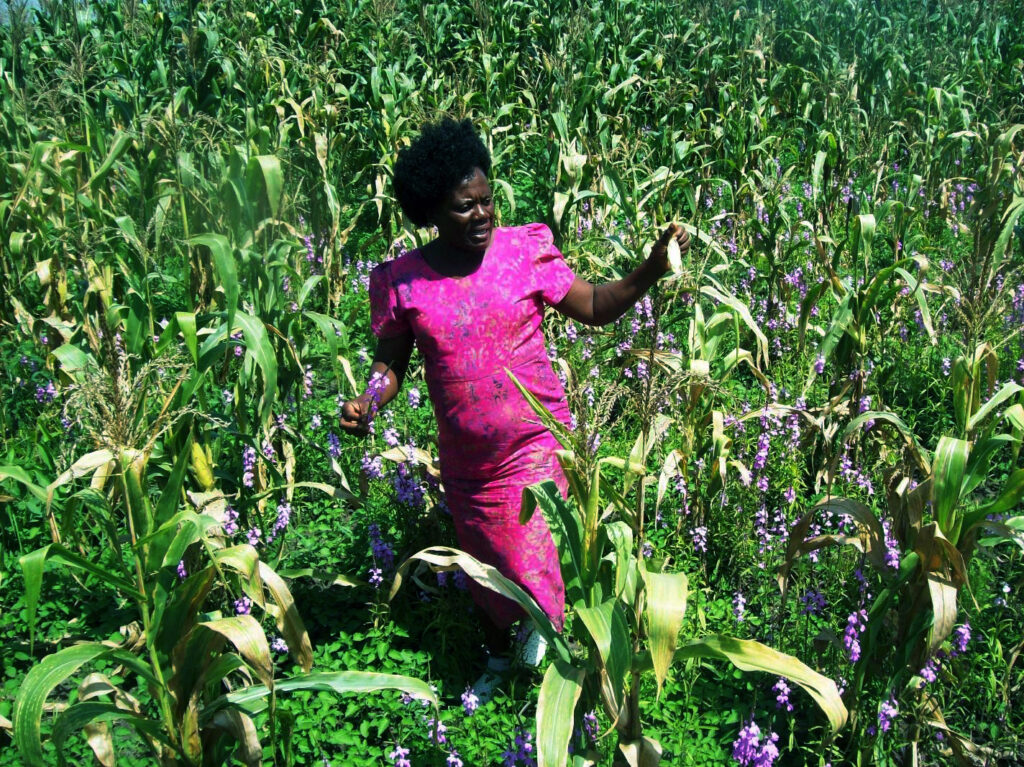By George Bita
An invasive weed is nowadays raising concern among farmers after wrecking havoc in maize gardens throughout Busoga sub-region.
According to Siraji Munaaba, a farmer at Bukooma parish in Luuka district, the weed possessing conspicuous small pink flowers has led to stunted growth of maize and sorghum crops.
“It seems like its seeds come with packaged maize seeds ready for planting. How else can one explain how it suddenly shows up in maize gardens and not any other place?” Munaaba asked.
The locals call it Kayongo although agriculturists refer to this menace to farmers as witch-weed or striga.
Apollo Musita, the Namutumba district agriculture officer said the weed causes crops it invades to have poor yield.
“It proves difficult to weed it off the garden after it infests the farmland as it keeps resurfacing however much the farmer keeps weeding. This is one persistent plant to deal with,” he narrated.
Augustine Walwawo, a farmer at Namavundu B village in Kaliro district lamented that Kayongo has somehow affected maize yields this harvest season.
“In some gardens, farmers may lose up to a ton of maize harvest due to witchweed infestation. All recommended sprays do not effectively deal with this weed,” Walwawo claimed.
He said that once the maize field is invaded the cobs produced do not carry any seeds at all.
Musa Lubanga, the Mayuge district natural resources officer noted that striga weed has affected numerous subsistence farmers in the area.
“The weed scientifically called Striga bilabiata gets entangled in the root system of the host crop. It is parasitic and its roots get attached onto the host crop like maize whose nutrients are now shared with disastrous consequences,” he revealed.
Lubanga blamed farmers over the spread of the witch weed saying many of them simply disperse the seeds of striga through tools and clothing.
“Each plant is capable of producing up to 500,000 seeds which may remain viable in the soil for over 10 years,” he said.
Musa Kasone, a farmer at Budooma village in Luuka district said that local farmers have been using the herbicide called Roundup to kill the weed.

“Roundup or glyphosate can do wonders in regard to this witchweed. However, it may be expensive to the ordinary farmer which may prompt usage of alternative means,” Kasone argued.
Musita added that since most of striga’s life cycle occurs underground, if it is not detected before it shows above surface it becomes very difficult to reduce crop loss.
He advised farmers to try striga-resistant maize varieties available at local outlets saying they can greatly reduce the seed bank left in the soil during the previous seasons.
Abdullah Balunywa, a farmer at Kasolo village, Iganga district said the weed had affected mainly crops that contributed a lot to local household incomes. “Most of our people fall in the farming category capable of earning on average sh3m every harvest season from 10 bags of 100kg maize per farm. Now with a possibility of lower yields due to Kayongo the common man will expect lesser income,” Balunywa explained.





